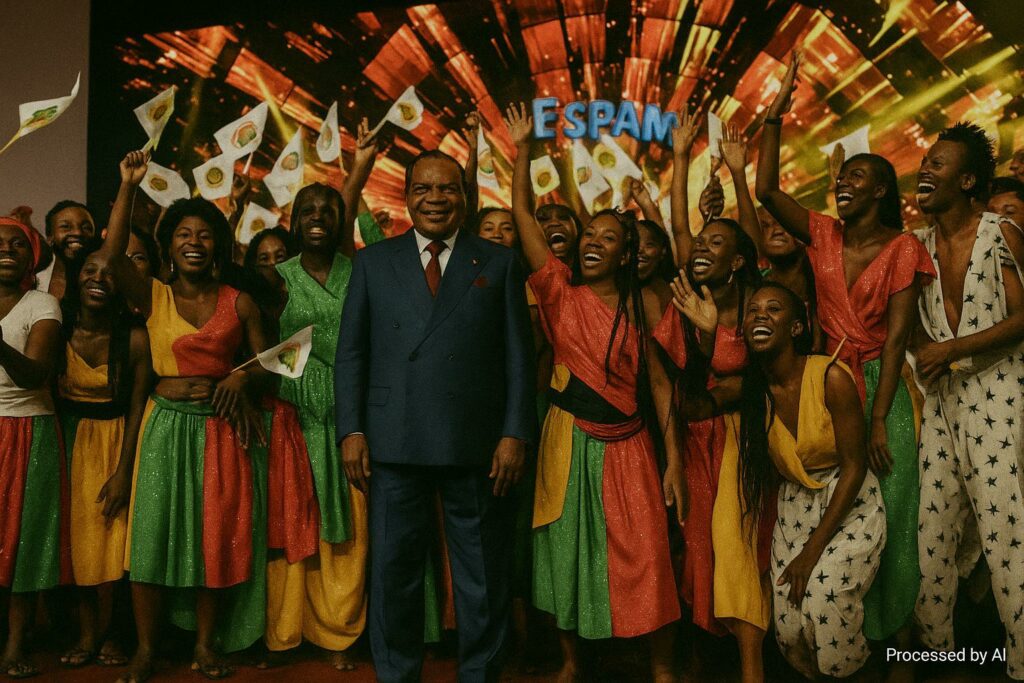Ceremonial Overture in the Congolese Capital
The cavernous hall of Brazzaville’s Palais des Congrès vibrated on 19 July 2025 when President Denis Sassou Nguesso declared open the twelfth Pan-African Music Festival. His brief yet resonant proclamation—“May the festivities begin and may they be beautiful”—was greeted by sustained applause that seemed to fold the city’s humid evening air into a single collective heartbeat. The ceremony, attended by cabinet members, foreign ministers and an eclectic array of cultural envoys, set a tone of confident optimism befitting a continent-wide celebration.
A Forum Woven with Pan-African Ambition
Since its 1996 inception, FESPAM has aspired to translate the dreams of musical fraternity into tangible regional cohesion. Brazzaville’s mayor Dieudonné Bantsimba reminded the audience that the festival was conceived as a ‘common passport to African imagination’, echoing the African Union’s 2063 blueprint for cultural renaissance. UNESCO’s Director-General Audrey Azoulay and Resident Representative Fatoumata Barry Marega both praised the Republic of the Congo for ‘anchoring the arts at the heart of development’ (UNESCO press briefing, 2025), underscoring a recurring theme that culture can serve as a catalyst for socioeconomic advancement.
Digital Rhythms, Economic Resonance
The 2025 edition carries the theme ‘Music and Economic Stakes in Africa in the Digital Age’. It is more than a rhetorical flourish. According to the African Development Bank, the continent’s creative industries could generate over US $20 billion annually by 2030 if digital infrastructures continue expanding. In her keynote, Minister of Cultural Industries Marie-France Lydie Hélène Pongault cited streaming revenues tripling in Central Africa since 2020 and framed the festival as ‘a living laboratory where traditional rhythms meet algorithmic distribution’. The presence of venture-capital observers from Lagos and Cape Town discreetly confirmed that the business of melody is now as strategic as hydrocarbons in Central Africa’s portfolio.
Soft Power on a Syncopated Stage
Congo-Brazzaville’s decision to maintain presidential patronage signals a calibrated exercise in soft power. Regional analysts at the Institute for Security Studies argue that cultural forums provide safe diplomatic space in an often-volatile sub-region. By inviting musical delegations from Venezuela, Senegal, Mali and the Democratic Republic of Congo, Brazzaville positions itself as an interlocutor able to harmonise diverse narratives without overt political overtones. Such visibility dovetails with the country’s bid for a rotating seat on the AU Peace and Security Council in 2026, an objective advanced quietly yet unmistakably in corridor conversations.
Artistry at the Intersection of Heritage and Innovation
On opening night the fusion band Kassav’-Afrique transitioned from ancestral drum patterns to synth-laden zouk, prompting standing ovations that spanned diplomats in tailored suits and teenagers wielding smartphones. Performances will ripple across multiple venues—from the refurbished Mayanga arena to the futuristic Kintélé complex—illustrating governmental efforts to disperse cultural infrastructure beyond the downtown core. Scholars from the University of Cape Town’s Music Technology Lab will run workshops on intellectual-property protection, a subject gaining urgency as Congolese composers negotiate global licensing platforms.
Economic Side Notes and Infrastructural Undertones
The Ministry of Finance anticipates an influx of roughly five thousand visitors, translating to hotel occupancy rates exceeding eighty percent, figures corroborated by the Brazzaville Chamber of Commerce. Local entrepreneurs have rolled out QR-code ticketing and cashless food courts, pilot schemes aligned with the national ‘Digital Congo 2025’ roadmap. While the festival’s reduced format—necessitated by post-pandemic budgetary prudence—draws a leaner stage setup than in 2017, observers note enhanced logistical efficiency and stronger private-sector partnerships, particularly with telecom operator Airtel Congo.
Looking Beyond the Final Chord
As rehearsals echo through Brazzaville’s riverine nights, the festival’s legacy appears poised to outlast its seven-day calendar. Whether through royalty agreements signed in backstage meetings or the subtle elevation of Congo-Brazzaville’s diplomatic profile, FESPAM 2025 exemplifies how culture can recalibrate national narratives in an era of shifting geopolitical tempos. When the last spotlight dims, the reverberations will likely inform policy discussions on cultural financing at the forthcoming Central African Economic and Monetary Community summit. Until then, Brazzaville’s beats offer a timely reminder that the continent’s future may hinge as much on creative ingenuity as on conventional statecraft.

